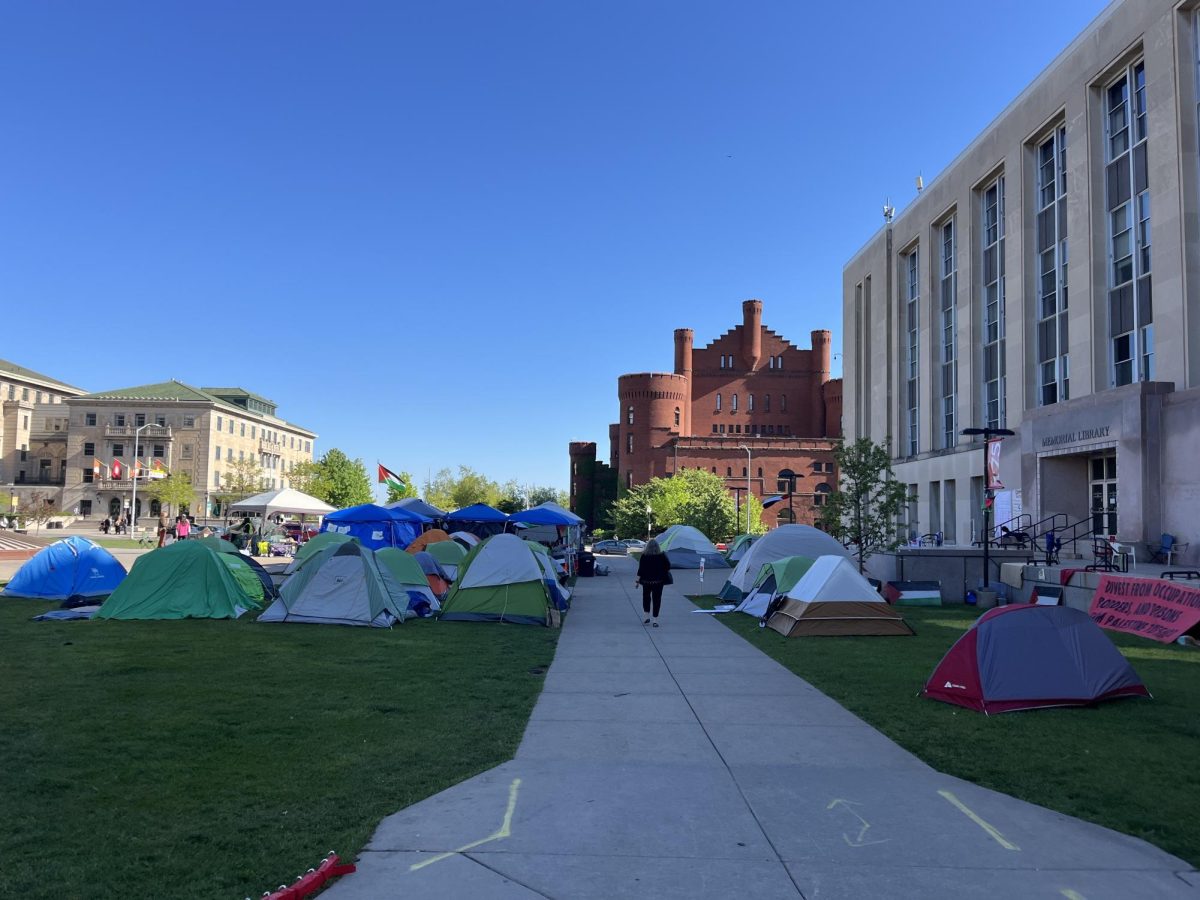[media-credit name=’YANA PASKOVA/Herald photo’ align=’alignnone’ width=’648′] [/media-credit]In 2004, audiences across the world saw the 1994 Rwandan genocide depicted in the Academy Award-nominated movie "Hotel Rwanda."
[/media-credit]In 2004, audiences across the world saw the 1994 Rwandan genocide depicted in the Academy Award-nominated movie "Hotel Rwanda."
Saturday, a Madison audience heard the story told from a man who not only lived through the genocide, but also saved more than 1,200 people and inspired the film.
In an effort to raise awareness about the 1994 Rwandan atrocities — and ones still occurring throughout Africa today — Paul Rusesabagina recounted his experience as a hotel manager in Kigali, Rwanda, during what has been described as "the most rapid genocide" of the 20th century.
"My main message is to raise awareness and to remind people what happened in Rwanda in 1994, and to remind them what is going on also all around in Africa," Rusesabagina said in an interview before presenting his speech, "Hotel Rwanda: Lessons Yet to Be Learned" to an audience of approximately 950 people at the Monona Terrace Saturday.
Amid a three-month-long genocide that claimed the lives of anywhere between 500,000 and 800,000 people in Rwanda from April to June 1994, Rusesabagina provided shelter for more than 1,200 refugees at a hotel where he was general manager.
Ten years later, actor Don Cheadle played Rusesabagina in "Hotel Rwanda," which was nominated for three Oscars and was based on Rusesabagina's experience during the genocide.
While the audience sometimes reacted with gasps at the details of his story, Rusesabagina calmly explained to the audience that he never questioned his decision to stay in Rwanda to try to protect those sheltered in the hotel, though a genocide was happening just a few feet outside the hotel's grounds.
"I saw myself within and didn't close my eyes and ears," Rusesabagina said. "I told myself I am not leaving this hotel, because if I leave … I will be a prisoner of myself."
Able to watch rebels wield guns and machetes from the hotel's roof, Rusesabagina said he never thought he would make it out to speak of the events.
"I stayed there without any hope to survive," Rusesabagina said. "Our choice was if we were going to die, to die by a better death … than being tortured."
At the end of the speech, Rusesabagina related his experience during the 1994 Rwandan genocide and the film's depiction to the genocide currently happening in Sudan and the civil war in Congo today, and why the international community needs to take action.
"What you saw on the screen in 'Hotel Rwanda' is the day-to-day life in the whole of Africa," Rusesabagina said. "Now that we know, what can we do? There's a lot to be done."
Tim Miller, a University of Wisconsin senior and member of "Engineers Without Borders" — a student organization that travels to underdeveloped nations to help with engineering projects — attended the speech with many other students from the organization and said he agreed with Rusesabagina's sentiment.
"There's awareness and there's action," Miller said. "And we need to take the next step beyond awareness."










